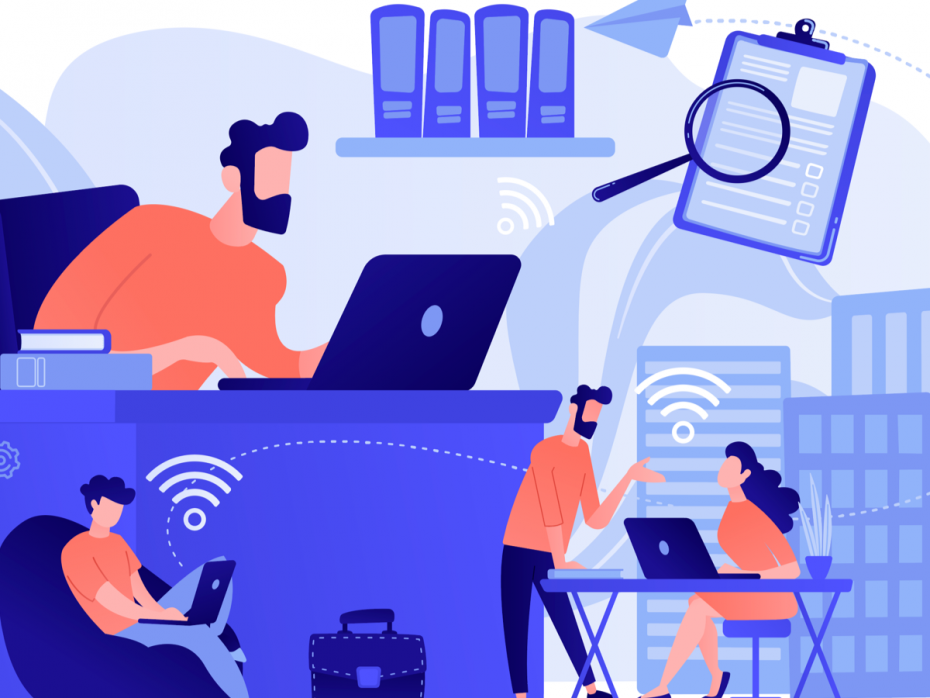
How do we get more women into coding? Fix how it’s taught and used
It’s time women said to the tech industry: ‘It’s not me, it’s you.’ And universities can help by not confusing the art of computer programming with rather dull ‘careers in coding’

You may also like
Popular resources
Mary-Ann Russon, a BBC technology of business reporter recently asked: “” My answer is “lots”, but if you work in the tech industry, you might not want to hear it.
I’ve been programming and teaching it most of my life. The demands of conceptualising problems, finding solutions, crafting symbols a computer can execute, then testing and making that usable by another human are generally underestimated. What we call “coding” is one somewhat overrated part of a larger skillset that takes 10 to 20 years to master.
The highest attainment is purpose, not just knowing what you’re doing but why you’re doing it. Sadly, the word “”, once preferred by internet founders, is damaged by misuse. Its friendlier replacement “coding” omits the playful, curious, creative, interpersonal and moral aspects of our work, and so obscures a grander socio-political reality.
So what is coding? Is it science? Engineering? As a computer scientist and electronic engineer with deep roots in physics and maths, I can assure you it’s really neither. But don’t take my word for it. Revered computer scientist Donald Knuth titled his lifelong work, an impeccable grimoire of algorithms before which all mortal computer scientists bow, – note the word “art”. Meanwhile, two of the greatest instructors of code, Hal Abelson and Gerald Sussman, tell us that programming is a form of “creative magic”.
- What to do when technology fails: an educator’s survival guide for online classrooms
- Immersive tech in teaching and learning: first steps into the metaverse
- Top tips for selecting and implementing new technologies
Those who’ve read Ada Lovelace know that she, like her older contemporary Mary Shelley, was a century ahead of the bean counters in apprehending technology. Is anyone, whatever their gender identification, not intrigued by creative magic?
, co-author of the Kids Get Coding series of books, believes “men and women often have different learning styles…men often follow a linear approach of going from A to Z when solving problems, while women often start from the problem and work backwards”. Indeed, the latter is how all good computer programmers should work. If were significant, they would give women a clear advantage in creative coding. So what went wrong that we now talk of tech as “male-dominated STEM”?
The issue is nuanced. For a start, what is being “sold” to women here? Several commentators advise teaching Python (a common commercial computer language) to women because “there are jobs” and they often require it. That’s bad faith. It’s selling the industry, not programming. They are not the same thing.
Conflating the art of programming with tech-industry careers makes for bad teaching. When learning to code, understanding trumps application, especially in a fast-changing world. Healthy intellectual growth connects imagination and emotion, so it’s a mistake to desecrate the learning setting with premature “skill-building”.
Coding is only as engaging (or dull) as the courses we design and the goals to which it is directed. Courses that tick boxes “set by industry” in pursuit of “getting a career in tech” dodge a moral crisis in our age. The tech industry itself has lost its ethical direction yet continues to recruit universities as not only subsidised skills camps but as ideological grooming grounds at a time when young people are wisely more sceptical.
According to the BBC article, we should offer “exciting prizes like money or internships with tech giants”. Seriously, if my child shows any talent for coding, I’ll try to steer her well clear of toxic workplaces steeped in the values of surveillance and manipulation. The industry may paint women as “bad programmers” for not being performant but, on the contrary, it’s to their credit if women baulk at becoming “tech bros” with a laddish bent to “”.
Tweedale may be correct that brain differences play a part, but for the wrong reasons. In my opinion, we do not offer sufficiently humane motives to engage the level of intelligence that women bring. Prevalence of women programmers won’t be improved by “environments and user interfaces to draw women in”, as Tweedale hopes. That unfairly puts the onus on supposed gender differences, not to mention that it’s immensely patronising when “softer” interfaces – supposedly better suited to women’s brains – are proffered as substitutes for “real coding”.
Not to set up any binary identity as a great hope, or imply that women are never sociopaths, but maybe one reason “women don’t go into tech” is that its values are so depressing. Surveillance capitalism is a debasement of the art and science of computing that mocks the genius of so many visionaries who strove for liberating and . Conning people out of their money, personal data, autonomy and dignity should be beneath us. I think that if Ada Lovelace were alive to see Google and Facebook, she’d throw herself under a train.
So, if women don’t want in, I applaud their wisdom. It’s time women said to the tech industry: “It’s not me, it’s you.” To get more women into code, let’s change what coding is for. Code is both an expression of, and a way to change, the values of society – something women have played a dominant role in for millennia.
And universities can help. We must re-humanise coding and put the mutuality and care back into it. Confusing the delightful, mind-expanding and still wide-open art of computer programming with rather dull “careers in coding” won’t do. Let’s find more universally human examples, metaphors and case studies to motivate learning. Let’s replace the tired canon of e-commerce, social media and big data mining with fresh, vibrant problems from music, art, sports, medicine and nature conservation.
For example, teaching face-recognition falsely implies a consensus of people in computing endorse the values of industrial surveillance. The same knowledge can be better explored through algorithms to detect cancer in medical scans. And in the absence of firm evidence of how gendered biological brain differences affect learning styles let’s stop carving out special interpretations of “code for women” – it’s patronising and unhelpful.
A challenge facing all governments, universities and society in general today is the dominance of big tech. One solution is not to split up monopolies, adding more heads to the hydra, but to fund radical alternatives that will naturally displace Google, Microsoft and Facebook, changing the very nature of tech. Right now, women with a disaffected attitude to established tech may be our saving grace. Instead of trying to make women more like incumbent Silicon Valley apex predators, isn’t it time we changed the values of tech and gave them a foothold to reclaim it for a better society?
Andy Farnell is a British computer scientist specialising in signals and systems. He is a prolific speaker, visiting professor, consultant, ethical hacker, and lifelong advocate for digital rights. He is teaching cybersecurity while writing a new book, Ethics for Hackers.
If you found this interesting and want advice and insight from academics and university staff delivered direct to your inbox each week, .


